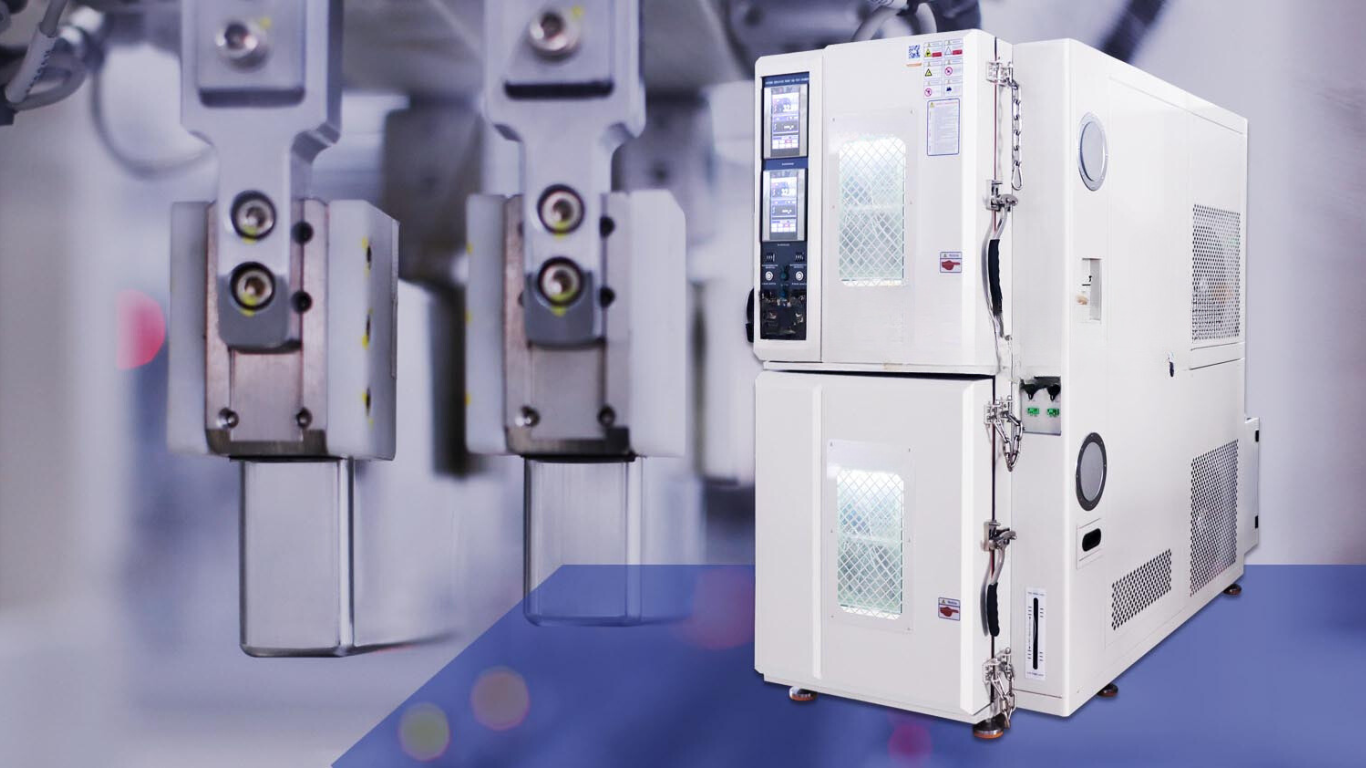Batteries power everything from electric vehicles and industrial machinery to renewable energy storage and everyday electronics. Whether you work in manufacturing, research, or maintenance, you need confidence that the batteries you rely on will perform as expected.
Over time, all batteries degrade, leading to reduced efficiency, increased safety risks, and unexpected failures. That’s where Battery Testing Equipment comes in, it helps you evaluate performance, detect potential issues, and prevent costly downtime.
What is Battery Testing Equipment?
Battery Testing Equipment includes specialized tools that measure key performance indicators such as capacity, voltage, internal resistance, charge/discharge efficiency, and overall health. By testing these factors, you can identify weak batteries before they fail, optimize energy storage systems, and ensure compliance with safety standards.
You will find different types of battery testing instruments, including:
- Battery Analyzers: Measure voltage, capacity, and resistance to assess performance.
- Battery Cyclers: Test how well a battery handles repeated charge and discharge cycles.
- Battery Testers: Provide quick evaluations of a battery’s overall condition.
- Battery Monitors: Track battery performance over time in backup power systems.
- Environmental Test Chambers: Simulate extreme temperature and humidity conditions to test durability.
With the right testing tools, you can extend battery lifespan, improve efficiency, and reduce unexpected failures in critical applications.
Why Do You Need Battery Testing?
Battery failures can cause operational downtime, safety hazards, and financial losses. Regular testing helps you:
- Prevent Failures: Identify batteries that are close to failure and replace them before they become a problem.
- Improve Performance: Ensure batteries are holding a charge and discharging properly.
- Reduce Costs: Avoid unnecessary replacements and extend battery life through proactive maintenance.
- Meet Safety Standards: Ensure compliance with industry regulations such as IEC 62133, UN38.3, and UL 1642.
- Optimize Energy Storage: Maintain efficiency in renewable energy systems, automotive power sources, and backup batteries.
Without regular testing, you risk using unreliable batteries that could fail when you need them most.
Types of Battery Testing Equipment and How They Help You
Not all batteries are the same, and different industries have unique testing needs. Here’s a breakdown of the main testing solutions available.
1. Battery Environmental Reliability Testing
If you use batteries in automobiles, renewable energy storage, aerospace, or outdoor electronics, they must withstand extreme conditions. Environmental testing chambers simulate:
- Temperature fluctuations: Check how well batteries perform in heat and cold.
- Humidity exposure: Prevent moisture damage in sensitive electronic devices.
- Mechanical stress: Ensure durability in demanding applications.
This type of testing is critical for ensuring that batteries used in electric vehicles, industrial equipment, and solar energy systems can function in harsh conditions.
2. Battery Safety Testing
With the increasing use of Lithium-ion (Li-ion) batteries in everything from smartphones to electric cars, safety concerns are a top priority. You need to test for:
- Overcharging risks: Prevent fires caused by excessive voltage.
- Short circuits: Detect potential failures in battery design.
- Thermal stability: Ensure safe operation under various temperatures.
Meeting safety standards is not just about compliance—it’s about protecting your equipment, workers, and end users.
3. Battery Performance Testing
Battery performance testing ensures that batteries meet energy efficiency, longevity, and charge capacity expectations. You can evaluate:
- Charge retention: Verify how well a battery holds a charge over time.
- Internal resistance: Identify potential energy loss within the battery.
- Energy density: Measure how much power the battery can store and deliver.
Industries such as automotive, telecommunications, and industrial manufacturing depend on performance testing to ensure reliable battery operation.
4. Vehicle Battery Testing Solutions
Electric and hybrid vehicles require high-performance batteries that last for thousands of charge cycles. Vehicle battery testing involves:
- Fast charging simulations: Check how well the battery handles rapid charging.
- Extreme temperature testing: Ensure the battery performs in both hot and cold climates.
- Degradation analysis: Predict long-term battery performance.
If you work in the automotive industry, battery testing helps you avoid recalls and ensures that vehicles meet efficiency and safety standards.
What You Can Measure with Battery Testing Equipment
Different battery testers measure specific parameters to give you a complete picture of battery health.
- Capacity: Determines how much energy the battery can store and deliver.
- Voltage: Checks the electrical potential difference between battery terminals.
- Internal Resistance: Identifies energy loss due to electrical resistance within the battery.
- Charge/Discharge Efficiency: Evaluates how effectively a battery cycles through charging and discharging.
- Temperature Stability: Confirms that the battery operates safely under varying temperatures.
By understanding these factors, you can make informed decisions about battery replacements, maintenance, and upgrades.
Choosing the Right Battery Testing Equipment for Your Needs
Not all battery testing tools are the same, so selecting the right one depends on your specific needs. Consider the following:
- Battery Type: Make sure the tester supports lead-acid, lithium-ion, nickel-metal hydride (NiMH), or other chemistries.
- Industry Standards Compliance: Look for equipment that meets ISO, IEC, UN, and UL regulations.
- Automation Features: Advanced testers provide real-time monitoring, automated reporting, and remote access.
- Portability: If you need on-site testing, choose handheld devices. For R&D and manufacturing, laboratory-grade testers are more suitable.
- Scalability: Some industries require high-throughput testers for large-scale production lines.
By selecting the right equipment, you can improve efficiency and get reliable data for decision-making.
Final Thoughts
If you rely on batteries for your operations, Battery Testing Equipment is not just an optional tool, it’s a necessity. By regularly testing your batteries, you can reduce failures, improve performance, and cut down on unexpected costs.
Whether you are working with electric vehicles, industrial machinery, backup power systems, or renewable energy storage, investing in the right battery testing tools will help you ensure efficiency, safety, and reliability.
Instead of waiting for a failure to happen, take control of battery health with regular testing and proactive maintenance. Your batteries will last longer, your systems will run more efficiently, and you’ll avoid the risks and expenses of unplanned downtime.
